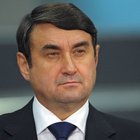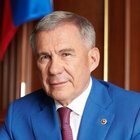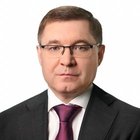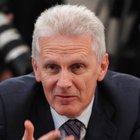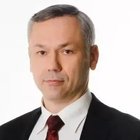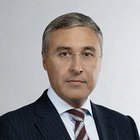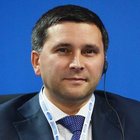In his opening remarks to the working group on Construction, Housing and Utilities Sector and Urban Environment, Presidential Aide and State Council Secretary Igor Levitin pointed out that the corresponding national project had to be adjusted in order to help regions address challenges related to housing, considering the existing imbalances in terms of housing provision, housing stock structure and the accumulated volume of unfinished construction projects in the regions.
Deputy Prime Minister Marat Khusnullin said that the programme to offer subsidised mortgages to drive interest rates down to 6.5 percent has had a good run with 80,500 loans granted worth a total of 205.2 billion rubles. He went on to stress the need to prioritise comprehensive territorial development in city planning initiatives.
Head of the Republic of Tatarstan and head of the State Council working group on Construction, Housing and Utilities Sector and Urban Environment Rustam Minnikhanov discussed state support for private housing projects. He noted the growing demand for single-family homes in rural areas, especially among families with children receiving significant financial support from the government.
Minister of Construction, Housing and Utilities Vladimir Yakushev spoke about the Stimulus programme, designed to promote housing construction by using newly developed land plots with the necessary infrastructure.
Participants in the meeting also discussed efforts to improve public spaces, and proposed considering the possibility of increasing funding for the Comfortable Urban Environment federal project.
Presidential Aide Andrei Fursenko and Adviser to the President Alexandra Levitskaya took part in the meeting of the State Council working group on Education and Science. Novosibirsk Region Governor Andrei Travnikov heads the working group.
Education Minister Sergei Kravtsov presented proposals to adjust the Education national project, placing special emphasis on efforts to provide equal opportunities in secondary education for all citizens, developing a digital educational environment and human resources, as well as promoting patriotism among young people.
Head of the Education subgroup, Kirov Region Governor Igor Vasilyev, presented proposals put forward by the regions to clarify performance indicators for regional governments in relation to general education. He also noted that digital technology should not replace traditional educational methods.
Minister of Science and Higher Education Valery Falkov discussed proposals to adjust the Education and Science national projects, including efforts to better integrate research into higher education, as well as to facilitate research development in Russia by engaging the educational and research capabilities of the regions.
The participants in the meeting discussed new challenges facing the education system, including the need to provide general education amid lockdowns, the creation of a common nation-wide educational space, as well as mechanisms for bringing research deliverables to the market.
The State Council working group on Small and Medium-Sized Businesses held its meeting, co-chaired by Presidential Aide and State Council Secretary Igor Levitin and head of the working group, Kaliningrad Region Governor Anton Alikhanov, to discuss proposals to adjust the Small and Medium-Sized Businesses and Support for the Individual Entrepreneurial Initiative national project.
Deputy Minister of Economic Development Tatyana Ilyushnikova outlined government support measures for small and medium-sized businesses.
Presidential Aide and State Council Secretary Igor Levitin and head of the working group, Governor of Nizhny Novgorod Region Gleb Nikitin co-chaired a meeting of the working group on Environment and Natural Resources, also attended by Adviser to the President Ruslan Edelgeriyev. The participants reviewed proposals to adjust the Environment national project.
Minister of Natural Resources and Environment Dmitry Kobylkin reported on the progress in implementing the Environment national project, and outlined priorities for achieving the national goal of a Comfortable and Safe Environment.
During the meeting, speakers representing the regions, federal agencies and the expert and business communities noted that a comprehensive solution for managing waste of all hazard classes and introducing new technology would be needed in order to make the necessary adjustments to the national project. Environment monitoring and waste, forest and water management systems will all have to be digitised.
Deputy prime ministers in charge of the corresponding national projects (programmes) will review proposals put forward by the State Council working groups, and present them to Vladimir Putin before October 30, 2020.
